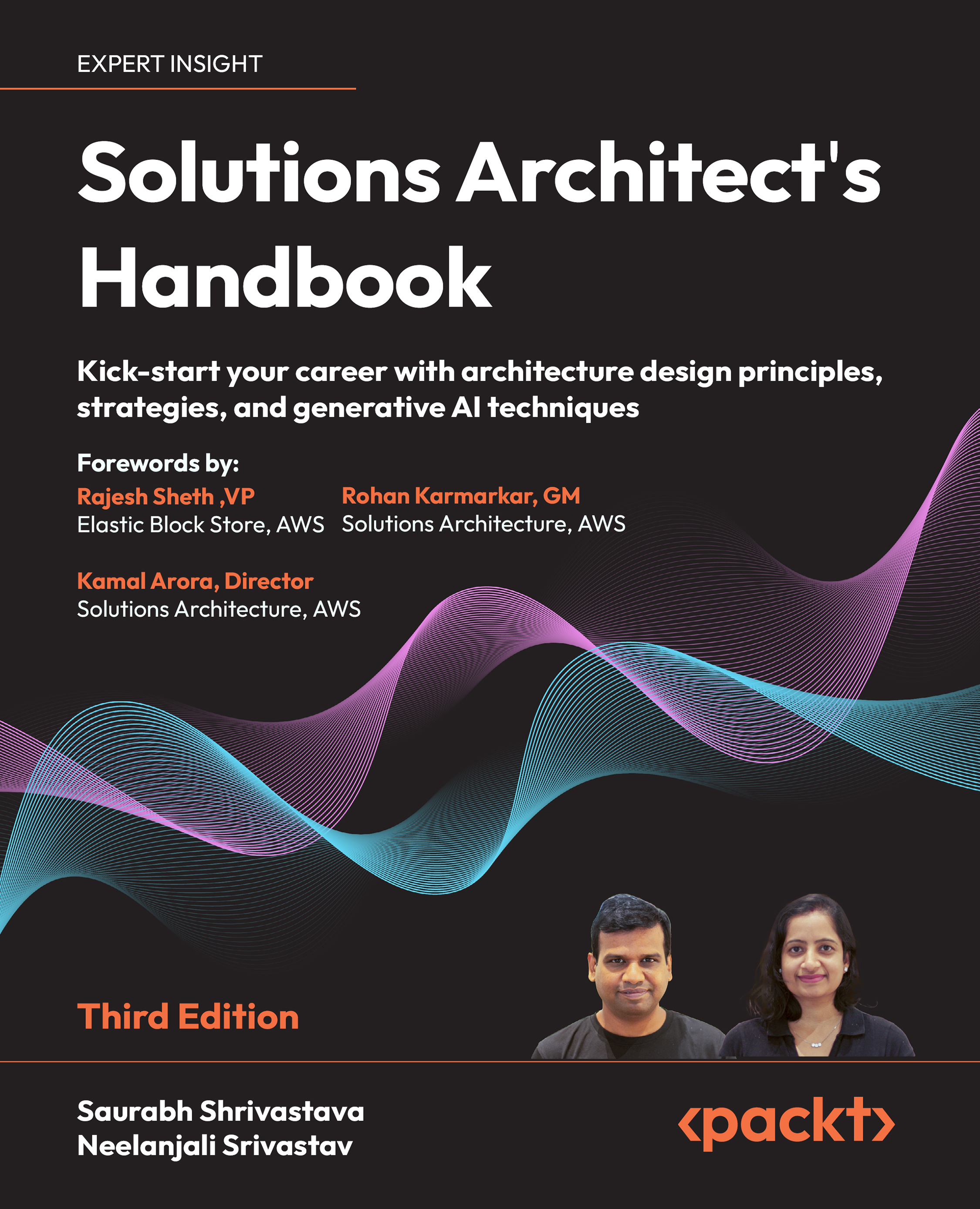Structure of the SAD
The structure of the SAD can differ from project to project per the stakeholder requirements and the nature of the given project. Your project could be creating a new product from the ground up, modernizing a legacy application, or moving the entire system to the cloud.
For each project, the SAD document may differ, but overall, it should consider various stakeholders’ views and include an array of sections as shown in the following screenshot:

Figure 16.2: Structure of a SAD
In the preceding SAD structure, you can see different sections covering multiple solution architecture and design aspects. The solutions architect may choose to add additional subsections or remove some sections as per the project requirements. For example, you can add another introduction section to discuss the document’s purpose with a summary. For a transition project, you may add a subsection to present the existing architecture, compare it with the target...































































